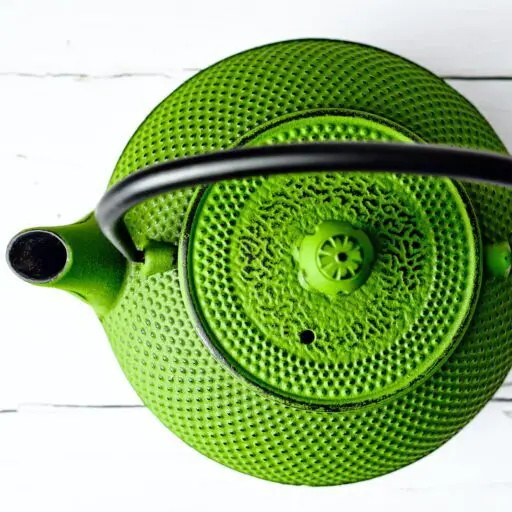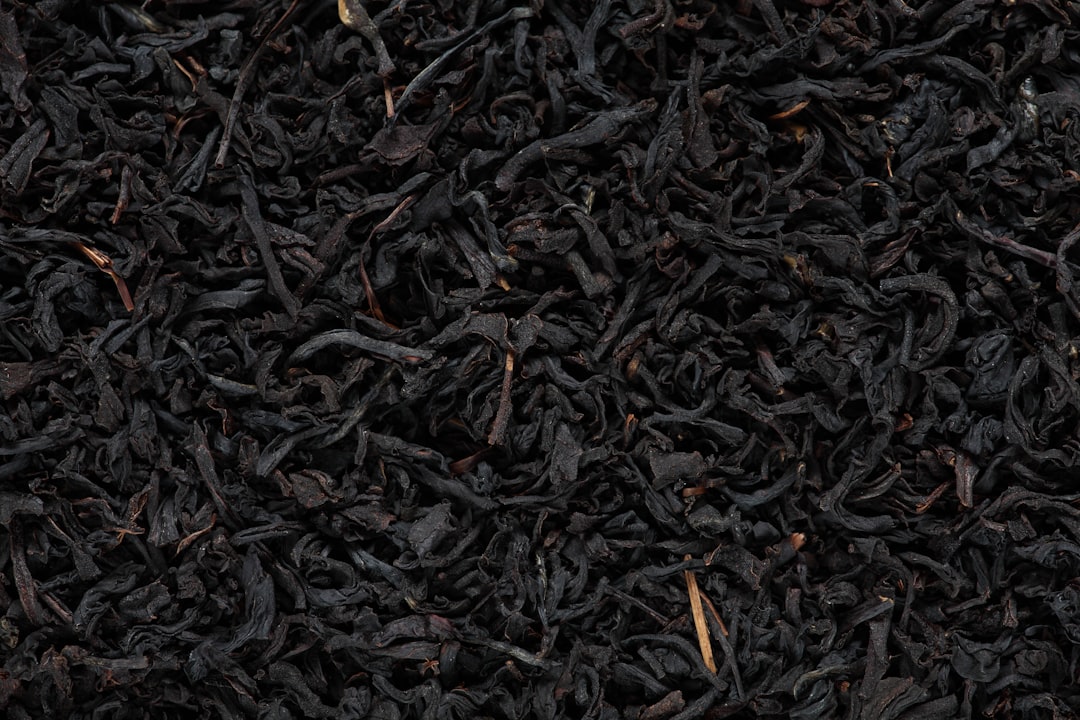Support our educational content for free when you purchase through links on our site. Learn more
The Most Famous Teas in the World [2023]
Tea is one of the most popular beverages in the world, enjoyed by millions of people across different cultures and countries. It has a rich history and comes in various flavors and types. In this article, we will explore some of the most famous teas in the world, their origins, and what makes them unique. So grab a cup of tea and join us on this delightful journey!
Table of Contents
- 1. Green Tea: A Health Booster
- 2. Black Tea: Bold and Flavorful
- 3. Oolong Tea: The Perfect Balance
- 4. White Tea: A Subtle Delight
- 5. Matcha Tea: The Zen Master
- 6. Pu-erh Tea: The Aged Wonder
- 7. Herbal Tea: Nature's Comfort
- 8. FAQ: Frequently Asked Questions
- 9. Quick Tips and Facts
- 10. Useful Links
- 11. Reference Links
1. Green Tea: A Health Booster
Green tea is one of the most famous teas in the world, known for its numerous health benefits. It originated in China and Japan and is made from the leaves of the Camellia sinensis plant. Green tea has a delicate flavor and a vibrant green color. It undergoes minimal oxidation during processing, allowing it to retain its natural antioxidants and polyphenols.
Key Benefits of Green Tea:
- Boosts metabolism and aids in weight loss ✅
- Rich in antioxidants that fight free radicals and promote overall health ✅
- Helps reduce the risk of heart disease and certain types of cancer ✅
- Enhances brain function and improves mental alertness ✅
- Supports a healthy immune system ✅
Popular Green Tea Brands:
2. Black Tea: Bold and Flavorful
Black tea is another widely consumed tea variety that has a robust flavor and dark color. It is fully oxidized during processing, which gives it its characteristic strong flavor. Black tea is commonly enjoyed with milk and sugar, but it can also be enjoyed plain for a more intense taste experience.
Key Benefits of Black Tea:
- Provides a natural energy boost due to its caffeine content ✅
- Helps improve focus and concentration ✅
- Rich in antioxidants that support heart health and reduce inflammation ✅
- Promotes healthy digestion and gut health ✅
- Offers potential benefits for reducing blood pressure and cholesterol levels ✅
Popular Black Tea Brands:
3. Oolong Tea: The Perfect Balance
Oolong tea is a traditional Chinese tea that is partially oxidized. It strikes a balance between the boldness of black tea and the freshness of green tea. Oolong tea has a diverse range of flavors, from floral and fruity to toasty and nutty. Its unique processing method gives it a complex and aromatic profile.
Key Benefits of Oolong Tea:
- Supports healthy weight management by boosting metabolism and reducing fat absorption ✅
- Helps improve skin health and promotes a youthful appearance ✅
- Contains antioxidants that may reduce the risk of chronic diseases ✅
- Supports strong bones and dental health due to its rich mineral content ✅
- Offers a calming and relaxing effect on the body and mind ✅
Popular Oolong Tea Brands:
4. White Tea: A Subtle Delight
White tea is the least processed of all teas, made from the young leaves and buds of the tea plant. It is lightly oxidized and undergoes minimal processing, preserving its delicate flavors and natural sweetness. White tea has a pale color and a subtle, nuanced taste.
Key Benefits of White Tea:
- Supports healthy skin by protecting against oxidative stress and promoting collagen production ✅
- Boosts immunity due to its high antioxidant content ✅
- Helps maintain cardiovascular health by reducing the risk of heart disease and lowering blood pressure ✅
- May aid in weight management by boosting metabolism and inhibiting fat cell formation ✅
- Offers a mild caffeine content, providing a gentle energy boost without causing jitters ✅
Popular White Tea Brands:
5. Matcha Tea: The Zen Master
Matcha tea is a Japanese tea that has gained popularity worldwide in recent years. It is made from finely ground green tea leaves and is known for its vibrant green color. Matcha tea has a rich and creamy flavor and is traditionally prepared using a bamboo whisk and a ceramic bowl. It is famously associated with tea ceremonies in Japan.
Key Benefits of Matcha Tea:
- Provides a concentration of antioxidants that promote overall health and well-being ✅
- Enhances focus and mental clarity due to its unique combination of naturally occurring compounds ✅
- Boosts metabolism and aids in weight management ✅
- Supports detoxification and the elimination of toxins from the body ✅
- Promotes a sense of calm and relaxation while simultaneously providing an energy boost ✅
Popular Matcha Tea Brands:
6. Pu-erh Tea: The Aged Wonder
Pu-erh tea is a unique fermented tea that originates from China's Yunnan province. It undergoes a lengthy aging process, which can range from a few months to several years. This aging process gives pu-erh tea its distinctive earthy and mellow flavor. Pu-erh tea is often enjoyed after meals as it aids in digestion.
Key Benefits of Pu-erh Tea:
- Supports digestion and helps to reduce bloating and indigestion ✅
- Promotes healthy cholesterol levels and cardiovascular health ✅
- Aids in weight management by boosting metabolism and aiding fat breakdown ✅
- Offers natural probiotics that support gut health and improve digestion ✅
- May have antimicrobial properties and support a healthy immune system ✅
Popular Pu-erh Tea Brands:
7. Herbal Tea: Nature's Comfort
Herbal teas are not technically considered tea, but they are brewed similarly and are a popular choice for those seeking natural and caffeine-free alternatives. Herbal teas are made from a variety of plants, flowers, and herbs, each with its own unique flavors and health benefits. Some popular herbal teas include chamomile, peppermint, and rooibos.
Key Benefits of Herbal Tea:
- Provides a wide range of flavors and options, including floral, minty, and earthy profiles ✅
- Offers natural remedies for various ailments, such as chamomile for relaxation and peppermint for digestion ✅
- Caffeine-free, making it suitable for individuals sensitive to caffeine or those who prefer to avoid it ✅
- Promotes relaxation and a sense of calm due to the soothing properties of certain herbs ✅
- Can be enjoyed hot or cold, making it a versatile beverage for all seasons ✅
Popular Herbal Tea Brands:
8. FAQ: Frequently Asked Questions
What is the No 1 tea in the world?
The title of the number one tea in the world is subjective and often depends on personal preferences. However, green tea is often considered as one of the most popular and consumed teas globally due to its health benefits and refreshing taste.
Which type of tea is most popular?
Among the various types of tea, black tea is the most popular worldwide. It is enjoyed in both traditional and modern tea-drinking cultures and is known for its bold flavor and versatility.
What is the most traditional tea in the world?
Black tea, with its long history and cultural significance, is considered one of the most traditional teas in the world. It has been enjoyed for centuries and is deeply rooted in tea-drinking traditions in many countries.
What is the best tea to drink in the world?
The "best" tea to drink varies from person to person, as it depends on individual tastes and preferences. However, green tea is often recommended for its numerous health benefits and refreshing flavor. Ultimately, the best tea is the one that brings you joy and satisfaction with every sip.
9. Quick Tips and Facts
- Tea cultivation originated in ancient China and was later spread to other parts of the world.
- Many teas, such as green tea and black tea, come from the same plant, Camellia sinensis. The differences lie in their processing methods.
- The tea industry is a multi-billion dollar industry, with countries like China, India, and Kenya among the largest producers.
- Tea ceremonies, such as the Japanese tea ceremony, are deeply rooted in cultural traditions and are a symbolic way of preparing and serving tea.
- The tea leaves used for making tea can often be reused for multiple infusions, allowing you to enjoy several cups from a single serving.
10. Useful Links
- Tea Brands™ Official Website
- Twinings Green Tea on Amazon
- Lipton Green Tea on Walmart
- Taylors of Harrogate Black Tea on Amazon
- Harney & Sons Black Tea on Walmart
- Teavana Oolong Tea on Amazon
- Art of Tea Oolong Tea on Etsy
- Numi Organic White Tea on Amazon
- Republic of Tea White Tea on Walmart
- Matchaeologist Matcha Tea on Amazon
- Jade Leaf Matcha Tea on Etsy
- Yunnan Sourcing Pu-erh Tea on Amazon
- Numi Organic Tea Pu-erh Tea on Walmart
- Traditional Medicinals Herbal Tea on Amazon
- Yogi Tea Herbal Tea on Walmart
11. Reference Links
References:


